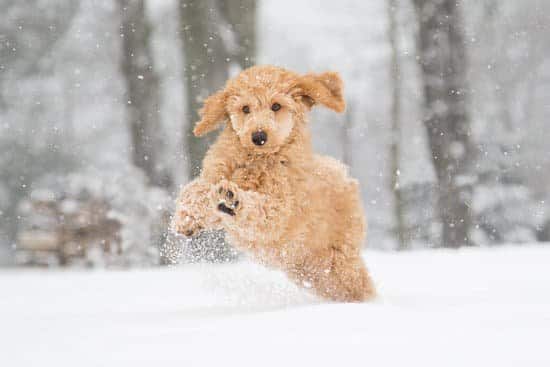Even though they are covered in fur, pets still feel the effects of winter weather. Temperatures below freezing with wind chill can cause serious harm, sickness, or even death to domesticated animals, like cats and dogs.
Animals need protection from the cold, just like humans. If you aren’t sure whether it is too cold for you pet to be outside, a good rule of thumb is if it’s too cold for you to stay outside for long periods, then it is probably too cold for them as well.
Keep your pet safe and warm all winter long by following these pet safety tips for winter.
Give Them Shelter
If your pet doesn’t live inside already, bring them inside for the winter and create a space for them in an area of your home that is not drafty. If this is not an option for you, then you must create a shelter for them where they can escape the elements. The shelter should be raised and waterproof, faced away from the wind, and either insulated or packed with plenty of blankets and straw.
Protect Their Paws
If there is snow or ice on the ground make sure the de-icing chemicals you use are not harmful to your pet. If your dog is indoors, it is also important to wipe its wet paws when it comes inside to avoid the ingestion of those chemicals and to prevent redness and irritation. If you go on winter walks, put Vaseline or snow booties on their paws to protect them.
Know Their Limits
Dogs and cats are susceptible to Hypothermia and Frostbite, so even if your pet is having fun playing in the snow, it is important not to keep them outside for long periods. Set outdoor limits by assessing their age and breed, for example small, short-haired dogs cannot spend as long of time outside as large, long-haired dogs, and the same goes for old or very young dogs.
Keep Away From Anti-Freeze
Anti-freeze is in abundance during the winter, but as little as a lick can cause kidney failure in your pet. Keep your anti-freeze stored away out of reach and be sure to immediately clean up any spills or leaks in your garage. When on walks, beware of unknown puddles in driveways or parking lots.
Check Food and Water
If your pet is indoors, it will typically be getting less exercise during this time of year. So if you feel like your pet is gaining an unhealthy amount of weight, monitor its food consumption. On the other hand, if your pet is outdoors, it will need to burn more calories to keep warm. Make sure you are feeding it frequently with more hardy meals. Also, be sure to check their water dish every few hours to make sure it has not frozen over.
Be Prepared
If a snow or ice storm knocks out your power or makes travel impossible, make sure you have stocked up on the proper food and medication for your pet. In the event of an emergency, be sure to also include supplies for them in your Emergency Preparedness Kit.
We know how much your pets mean to you. That’s why California Casualty automatically includes free Pet Injury Coverage as part of your auto insurance policy. Get a free coverage comparison today! Contact a California Casualty adviser at 1.866.704.8614 or https://www.calcas.com.
Related Articles:
Questions to Ask Before Boarding Your Pet
This article is furnished by California Casualty, providing auto and home insurance to educators, law enforcement officers, firefighters, and nurses. Get a quote at 1.866.704.8614 or www.calcas.com.
- Graduation – When to Remove Your Child from Your Auto Policy - May 18, 2023
- How to Prevent Catalytic Converter Theft - May 17, 2023
- How Much Does Home Insurance Cost? - May 17, 2023

